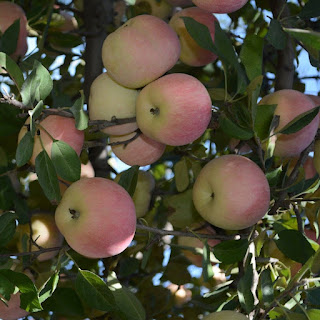Aloe Vera
Aloe Vera a Species of Aloe
Common Name
Kawar Gandal
Burn Aloe
True Aloe
Aloe vera
Botanical Name
Aloe vera
Information
Aloe vera is an evergreen succulent species native to the Arabian Peninsula. The thick leaves are filled with gooey flesh that stores water for survival in its native desert territories. Aloe vera has become a popular houseplant and is also incorporated into a wide range of cosmetics and skin-care products.
Tips from Garden Coaches
Aloe is a genus of flowering succulent plants that can be successfully cultivated both outdoors and indoors, and are very easy to maintain.
Attract Birds
Aloe vera and other Aloe species attract various types of birds and are generally pollinated by birds. During summer, when the plant blooms, its flowers are often visited by many birds including orioles, mockingbirds, warblers, woodpeckers, and hummingbirds. The nutritious and sweet nectar of aloe vera flowers is a valuable food source for these birds during the summer months.
Name Story
Aloe vera
Its Latin name, aloe vera, is most commonly used, where aloe stems from the word "alloeh" in Arabic, meaning shining and bitter, just like its pulp. It tastes bitter even with its crystal-clear appearance.
True aloe
When people hear the name "true aloe", they all raise the same question. Is there a fake aloe? The "true" in true aloe is not used to identify the authenticity of aloe. Instead, it is derived from its scientific nomenclature where its species epithet, Vera, means "true" or "genuine".
Barbados aloe, Chinese aloe, Mediterranean aloe
When you realize that Aloe vera is being called differently based on different geographical locations, you might wonder about the plant's origin. In fact, it did not originate from Barbados, China, or even the Mediterranean. It actually originated from the Arabian Peninsula, but nobody calls it Arabian aloe.
Interesting Facts
When you hear of Aloe vera, you think of gel, facial masks and maybe even aloe yogurt. It is widely used in our daily lives. However, never eat it raw, since it contains aloin, which can cause diarrhea. According to legend, Aloe vera won the favor of Alexander the Great on one of his expeditions for its edible and anti-inflammatory properties. Alexander the Great sustained his soldiers by growing Aloe vera, which was then widely cultivated.
Symbolism
Purity, healing, self-love, immortality.
Characteristics
Lifespan
Perennial
Bloom Time
Spring, Summer
Plant Height
8 to 39 inches
Spread
8 to 20 inches
Flower Size
Inflorescence 2 inch to 4 inches
Habitat
Maritime sands, rocks
Flower Color
YellowOrangeGreen
Leaf Color
GreenGraySilverBlue
Stem Color
Green
Conditions Requirement
Difficulty Rating
Growing Aloe vera is easy as long as you can give them what they need. They are sensitive to certain types of pests and diseases.
Sunlight
Full sun, Partial sun
Hardiness
10 ℉
Hardiness Zones
9 to 11
Soil
Sand, Loam, Chalky, Clay, Sandy loam, Acidic, Neutral, Alkaline..
Care Guide
Water
Aloe vera's soil should dry completely between watering. It grows best if planted in a porous pot with a drainage hole so the soil can dry between water additions. Watering is considered one of the most difficult parts of owning this plant. The top third portion of the potting soil should dry out before any water addition, and the plant should be watered twice as frequently in the spring as in the winter.
Fertilization
Fertilization once in spring.
Pruning
Trim the diseased, withered leaves once a month.
Planting Time
Spring, Fall
Propagation
Cutting, Division, Sowing
Potting Suggestions
Both
Pests and Diseases
Fungal diseases; Scale insects, flour bugs..
Scientific classification
Genus
Aloe - Aloe
Family
Asphodelaceae - Asphodel
Order
Asparagales - Asparagus and allies, Agaves, orchids, irises, and allies
Class
Liliopsida - Monocotyledons, Monocots
Phylum
Tracheophyta - Vascular plants, Seed plants, Ferns, Tracheophytes..
Uses
Beauty Improvement Value
Aloe vera can be used directly for beauty treatment. It can tighten, soften, and moisturize skin and diminish inflammation.
Garden Use
Aloe vera is an iconic piece found in rock and succulent gardens all over the world. Its interesting shape and verdant color have won this plant an Award of Garden Merit, which has only made it even more popular. Aloe vera is typically grown near other low-water plants, such as cacti or other succulents, or in pots as a standalone. It works great as a specimen plant in a rock garden or in containers.




Comments
Post a Comment